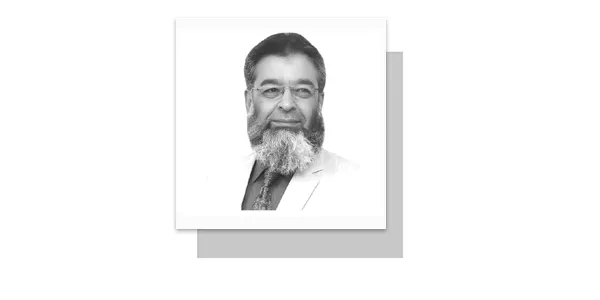ALLAMA Muhammad Iqbal, often called the “Spiritual Father of Pakistan,” envisioned a nation built on justice, equality, and self-awareness. His dream for Pakistan extended beyond the establishment of a state; it was to create a society grounded in Islamic values that would drive social, political, and economic progress. For Iqbal, Islam was more than a religion; it was a complete code of life, and he believed it could coexist with modernity to lead to holistic development.
Central to Iqbal’s philosophy was the concept of “Khudi,” or selfhood, which emphasized self-realization and personal accountability for the collective good. He urged individuals to recognize their potential and take responsibility for the nation’s progress. Iqbal envisioned Pakistan as a role model for the Muslim world—a place where the values of justice, equality, and freedom would shape governance, law, and daily life. In his view, a nation grounded in these principles could overcome challenges and achieve both moral and material progress.
However, Pakistan today, more than seventy years since its formation, has deviated from Iqbal’s ideals. Political instability, economic disparity, and social fragmentation mark the country, presenting a stark contrast to his vision. Corruption and nepotism have eroded institutions meant to uphold justice and equality. While a small elite enjoys immense wealth and power, a vast portion of the population struggles to meet basic needs. These issues reflect not only political and economic challenges but also a moral disconnect from Iqbal’s principles.
A significant reason for this deviation is the absence of integrity and moral values among leaders. Since its inception, Pakistan has faced a recurring cycle of crises. Iqbal believed that a nation’s prosperity depends on the moral character and foresight of its leaders, yet accusations of self-serving behavior have often plagued Pakistani leadership. This focus on personal gain over national welfare has hindered progress toward the values of justice and equality.
Despite Iqbal’s frequent mentions in speeches and commemorative events, his teachings have not been genuinely integrated into policies or governance. His philosophy has become symbolic rather than practical. The education system, which Iqbal considered crucial for intellectual and moral development, has also suffered from neglect. Instead of nurturing critical thinkers who can address national challenges, it emphasizes rote learning, failing to equip students with skills to navigate modern complexities.
Pakistan’s reliance on external powers has also diverted it from Iqbal’s vision of self-reliance. Geopolitical pressures have sometimes led to decisions that prioritize foreign interests over national priorities. Iqbal advocated for self-reliance on both individual and national levels, but Pakistan has increasingly depended on foreign aid and loans. This dependency has undermined the country’s sovereignty and limited its ability to pursue policies that reflect its values.
Another issue is the superficial engagement with Iqbal’s philosophy. Leaders often invoke his name and poetry to support their agendas, but their actions frequently contradict his principles. This reduction of Iqbal’s transformative ideas to mere slogans has stripped them of their deeper meaning and potential as tools for meaningful reform.
To realign Pakistan with Iqbal’s vision, a fundamental shift is needed in both leadership and national consciousness. A genuine re-engagement with Iqbal’s ideas is essential—not just as part of intellectual discussions but as a practical framework for addressing the nation’s challenges. His concept of “Khudi” must be revived to inspire a culture of self-reliance, hard work, and moral responsibility, encouraging people to contribute to societal progress.
The education system must also reflect Iqbal’s emphasis on intellectual and moral development. Schools and universities should not only teach Iqbal’s works but also foster critical thinking and encourage students to address contemporary issues through his philosophy. Producing a new generation of thinkers and leaders would bring Pakistan closer to realizing his vision.
Political leaders, too, must embody the integrity, selflessness, and moral responsibility that Iqbal championed. Invoking his name for political gain is insufficient; leaders must commit to building a society that upholds the values of justice, equality, and self-reliance. This requires shifting focus from short-term gains to a long-term vision for national progress.
Furthermore, Pakistan must reduce its dependency on external powers and focus on building a self-sufficient economy. Iqbal envisioned a nation that could stand independently, free from foreign influence. By prioritizing economic independence, technological advancement, and social justice, Pakistan can move closer to fulfilling Iqbal’s dream of becoming a just and prosperous nation.
In conclusion, while Pakistan has strayed from Iqbal’s ideals, it is not too late to return to his path. By sincerely embracing his teachings and applying them to today’s realities, Pakistan can still become a nation that exemplifies justice, morality, and self-reliance. Iqbal’s vision remains a living philosophy with the potential to guide Pakistan toward a brighter, more fulfilling future.
—The writer is contributing columnist, based in Islamabad.
(ememiqbal68@gmail.com)










